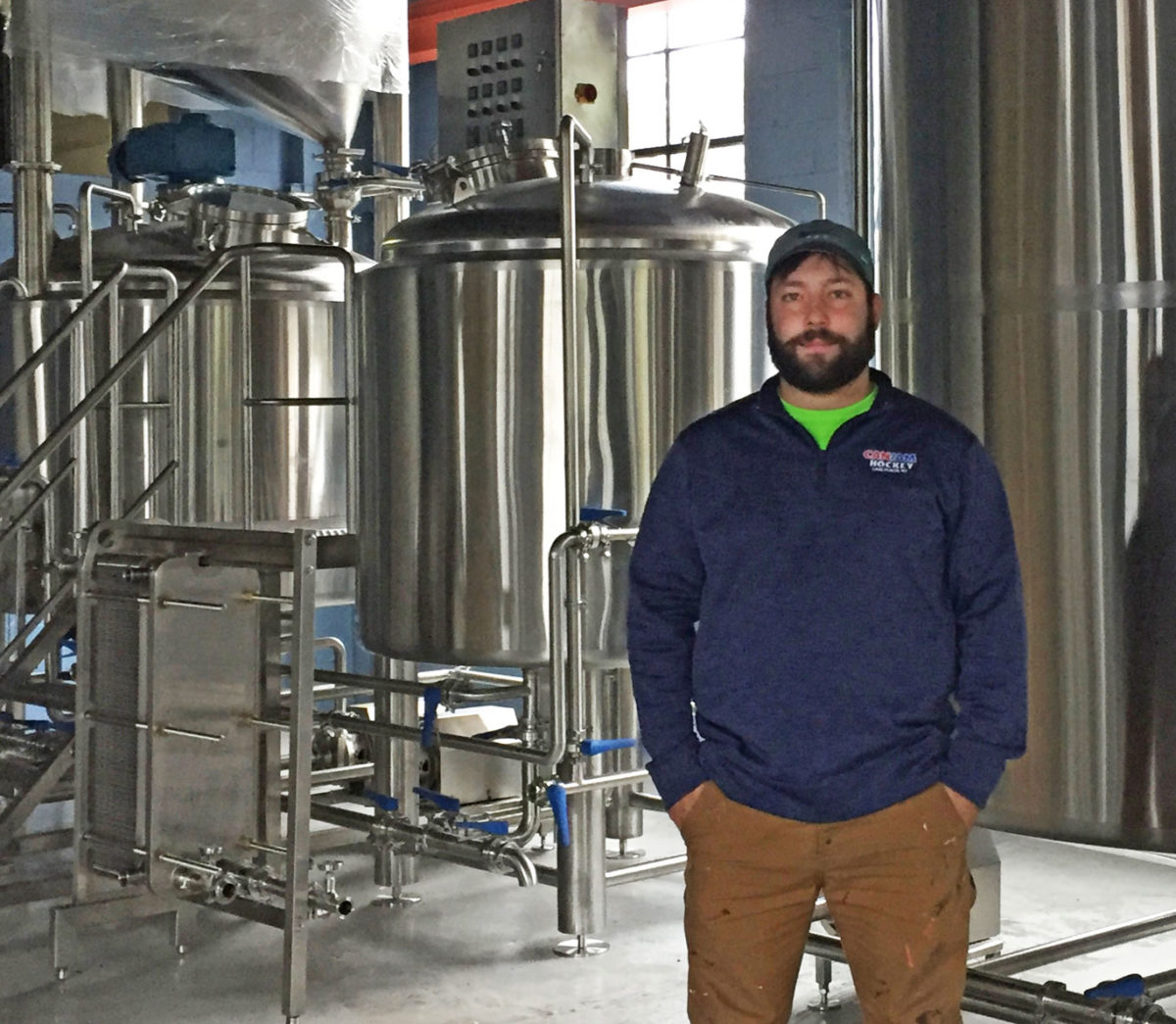
Connecticut has seen a huge uptick over the past couple of years in the number of craft breweries it has licensed.
But while that may be good news for brewers and discerning imbibers alike, it has also caught the attention of the major distributors, which in turn has birthed some legislation that could have a chilling effect on the small beer business ”” and not in a positive way.
Introduced by state Rep. Brandon McGee (D, Windsor and Hartford), HB 6658 would have prohibited craft breweries from selling beer in their taprooms; to self-distribute to retailers, restaurants and liquor stores; and to hold a manufacturer permit. Within days of introducing the bill ”” and an outcry from brewers and members of the public ”” McGee, a candidate for Hartford mayor, withdrew it.
“I didn”™t realize so many people were so passionate about beer,” he said after rescinding the bill.
Another bill ”” SB 742, introduced by Sen. Douglas McCrory (D, Hartford, Bloomfield and Windsor) ”” would have required breweries to choose between off-premise or on-premise sale and consumption. Facing similar pressure, McCrory has also pulled his bill from consideration.
“It isn”™t hard to guess who was behind those bills,” said Mark Szamatulski, co-owner with wife Tess of Veracious Brewing Co. at 246 Main St. in Monroe. “All you have to do is look at who the top contributors were to (McGee”™s) campaign.”
During their 2018 campaigns ”” McCrory ran unopposed ”” the two men received contributions from executives at Levine Distributing Co., an Anheuser-Busch InBev wholesaler in Norwich; F&F Distributors in New London; Star Distributors in West Haven; and G&G Beverage Distributors in Wallingford. McGee also received financial support from the Connecticut Beer Wholesalers Association.
While each of those donations were in the $50-$250 range, P. Scott Vallely, owner and brewmaster at Charter Oak Brewing at 39B Shelter Rock Road in Danbury, said he was “disappointed” in the two bills”™ arrival, and expressed concern that they will be revived in the future.
“I think it will come up again,” he said. “We”™ve got the big guys”™ attention now. And if they want to, they can squish us like bugs.” Vallely is of the opinion that the bills being pulled “was down to bad PR more than anything else.”
Ryan Broderick, co-owner of Reverie Brewing Co. at 57B Church Hill Road in Newtown, said he took heart from the immediate response he got from state legislators Rep. Raghib Allie-Brennan (D), Rep. Mitch Bolinsky (R) and Sen. Tony Hwang (R), all of whom represent Newtown and all of whom replied within a few days via email to assure him they would fight against such measures.
“The idea that we wouldn”™t be able to sell in the taproom would have been disastrous,” said Broderick, whose brewery opened in late February. “Almost all of our sales are on-site. We”™d like to get into canning down the road, but we”™re not there yet.”
Szamatulski was particularly outspoken about the bills, encouraging customers on his website to sign petitions and directly contact their lawmakers.
“I put $600,000 into this business,” he said. “I was planning to add a patio out front, add another room in back. But if they want to start changing the rules, after I spent the time to put in this equipment and build this business to the point where we”™re finally starting to make a profit, it just doesn”™t make sense.”
Veracious opened in 2015, but Szamatulski said if he knew then what he knows now, he may never have bothered.
“Connecticut is not a good place to do business right now,” he said. “None of us make the rules and if they can just keep shifting them around to benefit the bigger guys, where does that leave us?”
The latest data from the national trade group The Brewer Association, which works on behalf of independent breweries, counts 84 craft breweries in Connecticut ”” up from 49 in 2016, when craft beer sales contributed $718 million to the state”™s economy (the latest figures available), and significantly larger than the 15 that were in operation before that. Until the state Legislature amended its liquor laws in 2012, breweries could only supply tastings and needed to have a liquor license even if they were only selling beer.
According to the Connecticut Brewers Guild (CBG), the state”™s craft breweries produce over 166,000 barrels of beer a year. Connecticut ranks 29th in total number of breweries, 26th in breweries per capita (per 100,000 adults age 21 and over), 29th in beer production, 28th in economic impact and 27th in the excise tax rate ”” but sits at the bottom of the list for direct-to-consumer sales.
In Fairfield County, in addition to the aforementioned establishments, craft breweries have opened in Bethel, Bridgeport, Redding, Ridgefield, Sherman, Stamford and Stratford. Another 15 are in various stages of construction, with Asylum Brewing Co. likely to open in Newtown”™s Fairfield Hills this year.
The craft brewers maintain they are not trying to compete with liquor stores ”” “We”™re trying to get our product in their stores and not just rely on taproom sales,” Vallely said ”” or restaurants.
“That”™s why we”™re only open a few days a week, and only for a few hours on those days,” Szamatulski said, noting that most craft brewers don”™t have kitchens, relying instead on food trucks or delivery by local restaurants.
Not all the beer-related legislation has been negative for craft breweries. HB 7184, which has the endorsement of both the CBG and the Connecticut Beer Wholesalers Association, would increase the limit on how much beer a customer could take home ”” from nine liters (roughly 2.4 gallons) per person to nine gallons, or the equivalent of three cases of 16-ounce cans. The CBG had been pushing for no limits ”” like Massachusetts, New York, New Jersey, Vermont, New Hampshire and Maine have ”” but settled on the increase as a compromise with the wholesalers.
“You can go down the street to a liquor store and buy 20 cases of Bud Light if you want to,” Broderick said. “But this is better than what it was.”
Not only do Connecticut breweries lose sales, but the state loses taxes, “because we are forced to tell our customers they legally can”™t buy more, and collectively lose revenue to out-of-state breweries every week,” said CBG Executive Director Phil Pappas. “The added benefits of increasing direct-to-consumer sales limits will only continue to add to the massive economic impact that our industry has on our state, allow our breweries to reinvest in our businesses, create more jobs, increase our total production and simply sell more of our product.”




















